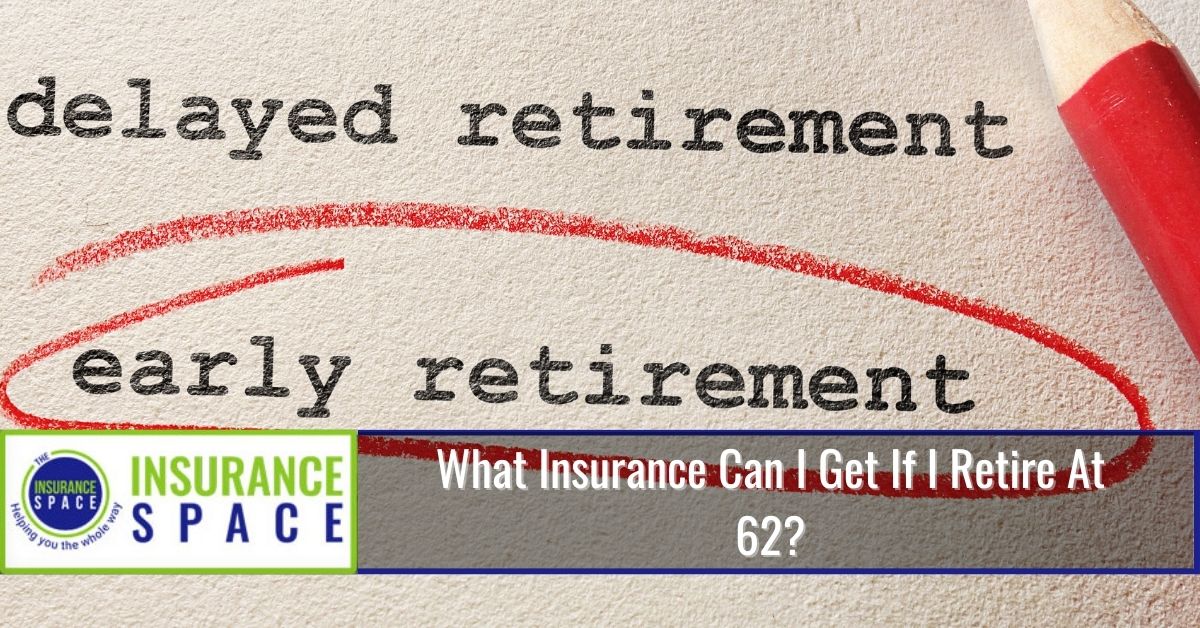|
When can you start getting Medicare if you retire early at age 62? This is a major concern for many who wish to retire before becoming eligible for Medicare at 65. In this article, we will explain your health insurance options if you retire at 62 or any age before 65. You'll learn whether COBRA, the ACA Marketplace, or Medicaid are suitable replacements for your employer plan. More importantly, we'll cover how to enroll in Medicare several years before 65 to avoid gaps in coverage. After reading this guide, you'll understand all the pieces needed to safely retire at 62 without leaving your health security up in the air.
Retiring at Age 62 Many people decide to retire early at age 62. This is the earliest age you can start receiving Social Security retirement benefits. However, enrolling in Medicare does not begin at 62. Retiring at 62 can help some people maximize Social Security payments over their lifetime. But retiring early also means you will need to pay for individual health insurance before you turn 65 and become eligible for Medicare. Eligibility for Medicare You become eligible for Medicare at age 65 as long as you or your spouse paid Medicare taxes for at least 10 years. Most people are automatically enrolled in Medicare Part A and Part B when they turn 65. Coverage starts the first day of your birthday month. Some disabled individuals or those with end-stage renal disease may qualify for Medicare before 65. But for most, Medicare eligibility begins at 65 regardless of when you choose to retire and claim Social Security benefits. Health Insurance Options for Early Retirees Medicare Coverage Unfortunately, Medicare coverage does not begin until age 65 even if you retire and claim Social Security benefits at 62. The only exceptions are for those with long-term disabilities or kidney failure who get approved for early Medicare before age 65. Marketplace Health Insurance One option for retiree health coverage before Medicare is enrolling in a health insurance plan on the Marketplace established by the Affordable Care Act. Depending on your income, you may qualify for premium tax credits and cost-sharing subsidies. COBRA You may be able to temporarily extend an employer-sponsored health plan from your previous job under COBRA. You typically have 60 days to elect COBRA after your employment ends. Coverage can continue for 18 months but you must pay the full monthly premium cost. Retiree Health Insurance Some employers offer retiree health insurance plans to former employees. This may bridge the gap until Medicare eligibility. Retiree plans are not too common but worth looking into. Enrollment in Medicare Enrollment Periods Once you turn 65, your Initial Enrollment Period to sign up spans 7 months - the 3 months before your birthday month, the month of, and 3 months after. After this, you can make changes during Medicare's Annual Enrollment Period or if you meet special enrollment criteria. Special Enrollment Periods These include losing other coverage, returning to work after 65, moving to a new service area, and more circumstances. A special enrollment period allows you to newly enroll or make changes to your Medicare coverage. Enrolling at Age 65 Turning 65 allows you to sign up for Medicare Part A and Part B. Most people will be automatically enrolled in Part A. You'll need to actively choose to enroll in Part B and pay the standard premium. If you have creditable coverage when you turn 65, you can delay Part B enrollment without penalty. Enrolling before Age 65 Those receiving Social Security Disability benefits for 24 months or have end-stage renal disease can enroll in Medicare before turning 65. The 25 month waiting period begins from the month you were entitled to disability payments. Other Health Insurance Options Private Health Insurance Plans Individual insurance plans purchased outside the Marketplace are an alternative for early retirees not yet eligible for Medicare. However, there is no guarantee of coverage and pre-existing conditions can affect eligibility. Premiums may be unaffordable. Affordable Health Insurance Programs Those with limited income and resources may qualify for Medicaid to get health coverage before reaching Medicare eligibility at 65. Medicaid eligibility is based on strict income and asset limits set by each state. Early Retirement Health Insurance Options COBRA coverage, Marketplace plans, Medicaid (if eligible), and retiree health plans can help fill gaps between early retirement and Medicare enrollment. Turning 65 triggers Medicare eligibility for most regardless of when you retire. Conclusion While you can retire at 62, Medicare eligibility still begins at 65 in most cases. Marketplace plans, COBRA, or Medicaid may help cover early retirees. Know the rules to enroll in Medicare with no penalty once you reach 65. With some planning, you can secure affordable health insurance even if retiring several years before Medicare starts. We’re Here to Help You do not have to spend hours reading articles on the internet to get answers to your Medicare questions. Give the licensed insurance agents at The Insurance Space a Call at (866) 717-8683. You will get the answers you seek in a matter of minutes, with no pressure and no sales pitch. We are truly here to help. FAQS What Medicare health insurance can I get if I retire at 62? If you retire at age 62, you will not be eligible for Medicare coverage until you turn 65. However, there are other health insurance options available to you. Can I get Medicare if I retire before age 65? No, you cannot get Medicare coverage if you retire before age 65. Medicare eligibility begins at age 65. What are my health insurance options if I retire early? If you retire before age 65, you may need to find health insurance through other means, such as the health insurance marketplace or through an employer-sponsored health insurance plan if you are still working. Can I enroll in Medicare at age 62? No, you cannot enroll in Medicare at age 62. You can only enroll in Medicare when you turn 65 or during your initial enrollment period. What is the age requirement for Medicare? The age requirement for Medicare eligibility is 65 or older. Are there any special enrollment periods for early retirees? If you retire before age 65 and lose your employer-sponsored health insurance, you may be eligible for a special enrollment period to enroll in a marketplace health insurance plan. Can I qualify for a special enrollment period if I retire early? Yes, if you retire early and lose your employer-sponsored health insurance, you may qualify for a special enrollment period to enroll in a marketplace health insurance plan. What are my options for health insurance if I retire before age 65? If you retire before age 65, you may explore options such as purchasing health insurance through the health insurance marketplace or obtaining coverage through a spouse's employer-sponsored health insurance plan. Can I get health insurance through the marketplace if I retire before age 65? Yes, if you retire before age 65, you can get health insurance through the marketplace during the open enrollment period or during a special enrollment period if you qualify. What are the insurance options if I retire? The insurance options if you retire depend on your age and eligibility. If you retire before age 65, you will need to find health insurance through other means, such as the marketplace or employer-sponsored plans. Once you turn 65, you can enroll in Medicare coverage.
0 Comments
Leave a Reply. |
Contact Us(866) 717-8683 Archives
December 2023
Categories
All
|
Navigation |
Connect With UsShare This Page |
Contact Us |
Location |
|
Plans are insured or covered by Medicare Advantage (HMO, PPO, and PFFS) organization with a Medicare contract and/or a Medicare-approved Part D sponsor. Enrollment in the plan depends on the plan’s contract renewal with Medicare. We do not offer every plan in your area. Please contact medicare.gov or 1-800-Medicare to get information on all your options.
|
Website by InsuranceSplash


 RSS Feed
RSS Feed